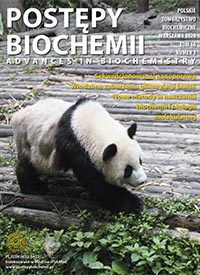Role of brain-derived neurotrophic factor in appetite control
DOI:
https://doi.org/10.18388/pb.2020_340Abstract
It has been found that in brain areas responsible for controlling appetite brain-derived neurotrophic factor (BDNF) and TrkB receptor expression are also present. In addition to involvement in neurogenesis, neuroprotection and synaptic plasticity, BDNF has anorexigenic activity. Decreasing of BDNF levels in the brain causes uncontrolled food intake, in turn, administration of BDNF to the central nervous system (CNS) leads to weight loss in animals. BDNF may participate with other factors such as leptin, insulin, cholecystokinin or corticotropin in the regulation of food intake. In addition, BDNF can affect glucose metabolism. It was found that peripheral BDNF level is lower in anorexia compared to healthy people. Moreover, BDNF levels tend to return to basal value when body weight normalizes. The mutation in the BDNF gene could also be important in the pathogenesis of obesity, although data on the blood concentration of this neurotrophin in obese are ambiguous.
Downloads
Published
Issue
Section
License
Copyright (c) 2020 Advances in Biochemistry

This work is licensed under a Creative Commons Attribution 4.0 International License.
All journal contents are distributed under the Creative Commons Attribution-ShareAlike 4.0 International (CC BY-SA 4.0) license. Everybody may use the content following terms: Attribution — You must give appropriate credit, provide a link to the license, and indicate if changes were made, ShareAlike — If you remix, transform, or build upon the material, you must distribute your contributions under the same license as the original. There are no additional restrictions — You may not apply legal terms or technological measures that legally restrict others from doing anything the license permits.
Copyright for all published papers © stays with the authors.
Copyright for the journal: © Polish Biochemical Society.




